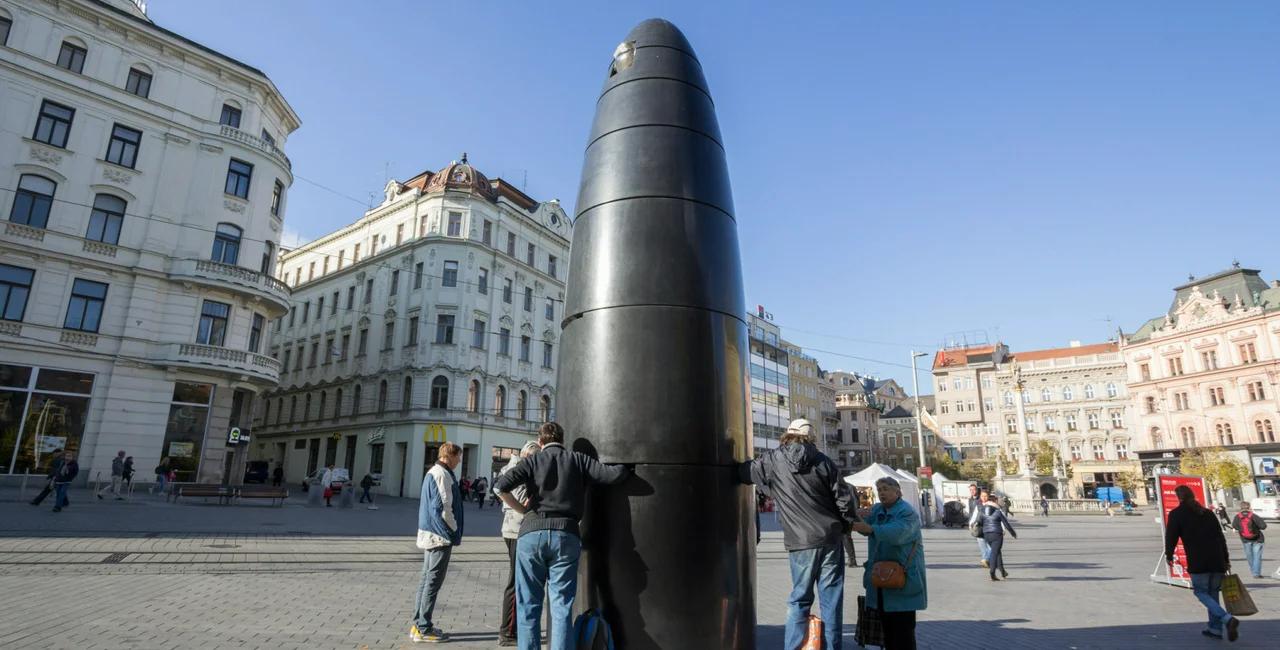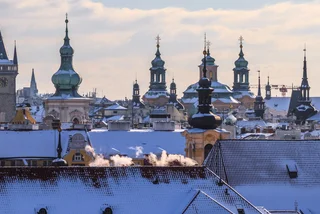Named one of Europe’s oddest attractions by the Guardian in 2016, the black granite “astronomical clock” in Brno’s Freedom Square marks the Swedish army’s retreat from the city during the Thirty Years War in 1645.
The non-traditional timekeeper (frequently likened to a giant vibrator or penis), typically spills marbles from one of its four openings every day at 11 am. Now following a period of repairs, it’ll be getting its balls back next week for good, reports Novinky.
“The glass balls, which always fall from the astronomical clock at eleven o’clock as a symbol of the Brno noon, will start rolling into one of the four holes in the lower part [of the structure] again from next Monday,” the server writes.
The complex device was unveiled in 2010 and since then has become both a source of ridicule and pride for the South Moravian city.
The 11 am marble spill is a nod at clever locals who tricked Swedish troops, commanded to leave by noon if they hadn’t yet captured the city, into retreating by turning the clock back an hour.
Since 2010 Brno’s city-center “orloj” has released more than 7,000 marbles with numerous motifs, among them the city’s coat of arms.
The top of the astronomical clock, designed by Oldřich Rujbr and Petr Kameník, is made of solid stone and weighs an estimated almost half a ton.
Repairs to its worn-out brass ring mechanism costing 120,000 CZK were led by the Brno Technical Networks.
The upper part of the monument has rotated more than five million times in almost ten years of operation.
From next week, spectators will once again be able to catch the marbles pouring from the monument to take home as a souvenir as well as experience the aforementioned “Brno noon” when the bells of the Cathedral of Saints Peter and Paul ring out at 11 am.












 Reading time: 1 minute
Reading time: 1 minute 






























